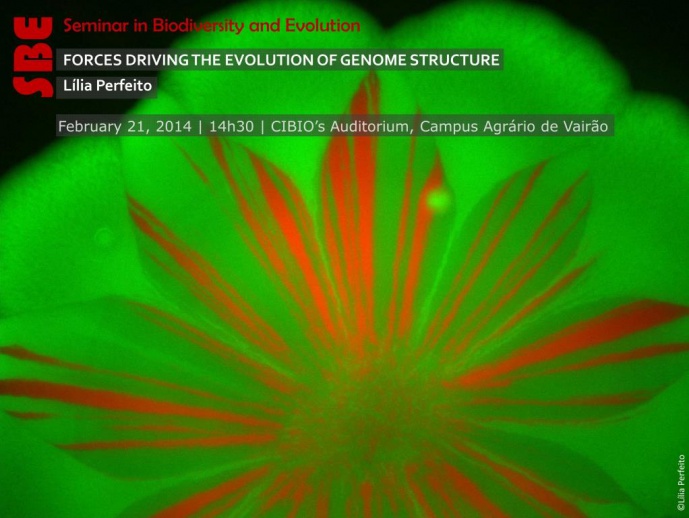FORCES DRIVING THE EVOLUTION OF GENOME STRUCTURE


One of the biggest challenges in modern biology is to understand how different genotypes respond to selective pressures. Recent research efforts made significant progress in describing the nature of spontaneous mutations, but the question of how their effects depend of the genetic background remains open.
Chromosome rearrangements are common in natural populations and are thought to be involved in speciation events. In addition, they are very common in cancers, either as a drivers or passengers in the oncogenic process. Recently we showed that chromosome rearrangements directly affect fitness, and like most mutations, can be deleterious or beneficial. Hence, despite their initial disadvantage during sexual phases of the life cycle, they can compensate during asexual growth and be maintained. This observation hints at the short term consequences of this type of variation. Using experimental evolution in fission yeast, I now want to address the impact of chromosome structure on the long-term evolutionary path of populations. Towards that goal we are currently carrying out two experiments. One is to propagate rearranged strains under asexual reproduction and measure their speed of adaptation and the types of mutations they accumulate. The second, is to mix wild type and rearranged strains in a life cycle that includes sexual reproduction and ask how populations cope with the deleterious effects of meiosis under these conditions. The results from these experiments show that chromosome structure can affect the evolutionary path of populations and that meiotic deleterious effects can be quickly solved by natural selection.
Lília studied microbiology and genetics at the University of Lisbon, and then went on to do a PhD at the Instituto Gulbenkian de Ciência using experimental evolution and population genetics to study adaptation. After her PhD, Lília did a post-doc at the University of Cologne (Germany) describing the fitness effects of mutations from their underlying molecular causes. She then moved back to the IGC where she did another short post-doc studying the fitness consequences of genomic rearrangements. Lília, who is starting an independent research group at the IGC, will be at CIBIO-InBIO on the 20th and 21st of February as a guest of Philip Gerrish from MDE.
Image credits: Lília Perfeito